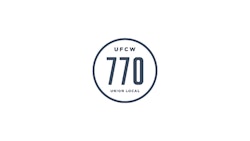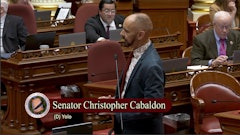
California legislation to repeal the state’s forthcoming cannabis excise tax increase cruised through another unanimous committee vote on May 5, providing industry stakeholders hope in avoiding an existential threat to their retail businesses.
The Assembly Revenue and Taxation Committee members voted, 6-0, to advance Assembly Bill 564, which aims to stop the excise tax rate from increasing from 15% to 19% on July 1, 2025, under trigger language that Gov. Gavin Newsom orchestrated in a budget trailer bill three years ago. The four percentage points reflect a 26.7% increase.
A.B. 564, sponsored by Rep. Matt Haney, D-San Francisco, also commanded a 15-0 vote in the Business and Professions Committee on April 22, meaning more than a quarter of the full chamber’s members have united behind the legislation that now heads to the Appropriations Committee.
“This is a tax increase that is solely going to be on this single industry,” Haney told Revenue and Taxation Committee members on Monday. “It is one that was put into place a few years ago, and during that time, over the past few years, we’ve seen an industry that has experienced incredible challenges to be able to survive in an environment where the illegal, untaxed illicit market continues to grow.”
Specifically, unlicensed cannabis cultivators produce an estimated 11.4 million pounds of unregulated cannabis annually, including 2.4 million pounds that are consumed in California and 9 million pounds that leave the state, according to an ERA Economics report commissioned by the state’s Department of Cannabis Control (DCC). That unlicensed market represents roughly 63% of what’s consumed in California and 89% of what’s produced in California annually.
In other words, California is missing out on more than $1 billion in annual excise tax revenue based on what’s being consumed in the state, not to mention local and state sales tax revenues.
The CDTFA collected $600 million in excise tax revenue from licensed operators in 2024, falling short of an annual $670-million benchmark established in the 2022 law to avoid the tax hike. However, many industry participants and advocates fear that raising taxes will only lead to fewer licensed operators and smaller revenue totals.
“More and more small cannabis businesses are succumbing to the pressure of overtaxation,” Haney said.
Absent of A.B. 564 or similar legislation being implemented, the California Department of Tax and Fee Administration (CDTFA) announced May 1 that the department is required under 2022 law signed by Newsom to increase the excise tax levied on cannabis retail sales.
Testifying in support of the legislation this week, Amy Jenkins, the executive director of the California Cannabis Operators Association (CaCOA), said the licensed cannabis industry faces ongoing instability. The CaCOA represents roughly 300 licensed operators across the supply chain.
“It is in a crisis, and any suggestion that this crisis is overstated is a misrepresentation of the facts,” Jenkins said. “Whitney Economics, one of the leading national cannabis market analysts, slashed its five-year U.S. cannabis retail forecast by $21 billion. Why? Because states like California are losing market share due to high tax enforcement.”
Kristin Heidelbach, the legislative director at the United Food and Commercial Workers (UFCW) Western States Council, also testified in support of A.B. 564. The UFCW represents more than 5,000 unionized cannabis workers in California.
“We have been screaming that the British are coming for a while, but we now have a cannabis industry that’s competing with an unchecked hemp industry that does not pay the tax,” she said. “We have an illicit underground industry that competes with them and doesn’t actually pay any of the fines and fees that aid in enforcement. And now we have a possible tax hike, an increase, which means that more and more people are going to lose their businesses, more jobs will be lost. This is not a tax decrease. This is simply a freeze. We’re just trying to fight another day.”
California led the nation with 12,600 cannabis jobs lost in 2023 and 5,000 cannabis jobs lost in 2024, according to industry employment agency Vangst.
The California cannabis industry’s excise tax revenues, which have generated more than $3.7 billion since adult-use sales launched in 2018, largely fund the state’s Tier 3 recipients, including child care programs, youth groups, conservation programs, law enforcement organizations and drug prevention centers.
Alex Loomer testified in opposition to the bill on behalf of Resources Legacy Fund, a nonprofit organization that focuses on using public funds for conservation and climate resilience. The organization helped draft the environmental funding and regulatory sections of Proposition 64, which voters approved in November 2016 to legalize adult-use cannabis.
“Today, you’re presented with a simple choice between protecting kids and the environment or increasing cannabis industry profits,” she said.
Loomer went on to mention other findings in the DCC-commissioned ERA report released in March, including that California’s licensed cannabis production increased by 70% from 2020 to 2024 and that the number of units sold at licensed dispensaries has increased as prices continue to decrease.
She neglected to mention that 27% of U.S. cannabis operators reported profitability in 2024—compared to 65% of all small businesses in the U.S. that are profitable—according to Whitney Economics’ 2024 U.S. Cannabis Business Conditions Survey.
This lack of profitability in the U.S. cannabis industry has led to cash-starved operators who can’t afford to pay one another, including an estimated $4.2 billion in delinquent payments in 2024, according to Whitney Economics.
In addition, these operators face hefty fines for falling behind on their tax obligations, including a 50% penalty in California for late or missed payments to the CDTFA.
“Let’s also be clear about what the voters intended,” Jenkins said. “Prop. 64 references, no fewer than five times, that taxes must be structured to ensure the legal market outcompetes the illicit market. Yet we are seeing the opposite.”

























